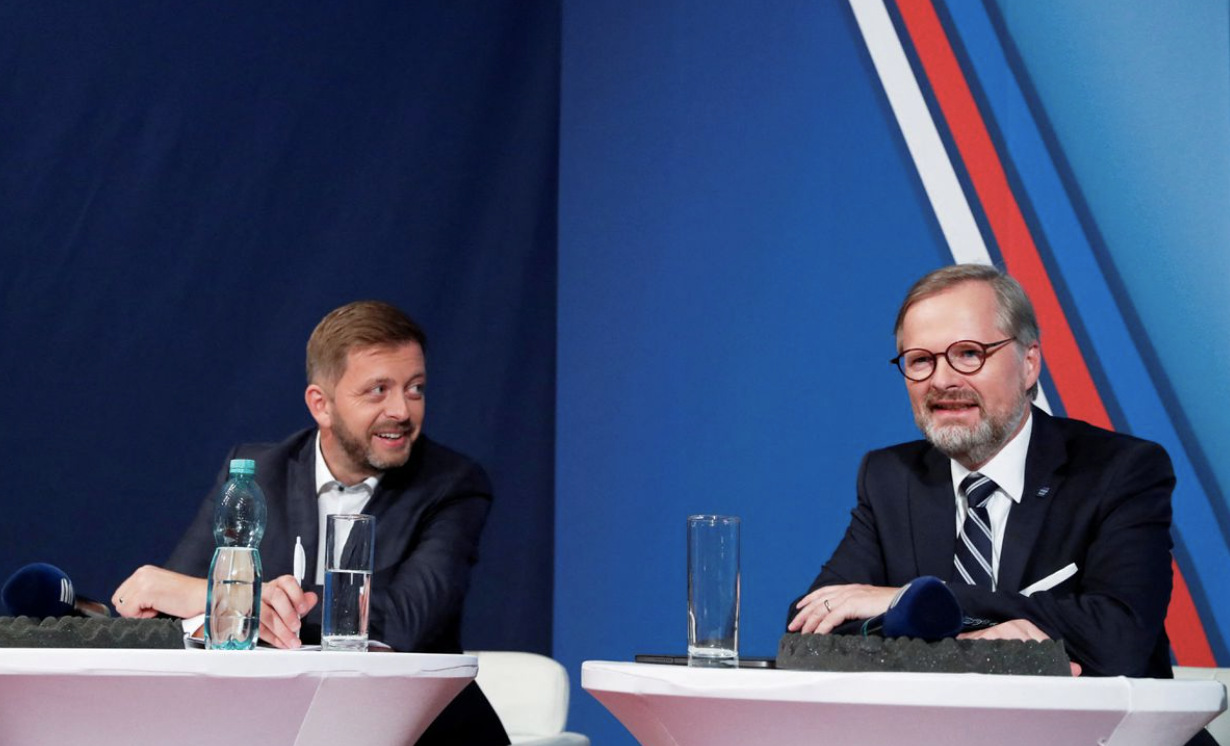Czechs Continue Checks at Slovak Border
A Czech officer reviews a traveler’s documents at the border with Slovakia. Photo: Armin Weigel/dpa.
Travelers from Slovakia are frustrated over border controls that remain in place by the Czech Republic. The Czech government introduced new border checks at all 27 road crossings with Slovakia late Sept., in order to curb illegal migration through its territory. The original measure was to last 10 days but was extended multiple times. Now, border controls could last until mid-Dec.
Since Sept., the checks have been met with strong criticism from Slovak leaders, and those who face longer wait times when commuting for work. The Czech authorities agreed that the controls are necessary. “It is regrettable, but the migration wave from Slovakia to the Czech Republic has worked without any intervention from the Slovak side,” said Interior Minister Vít Rakusan.
Slovak leaders accused the Czech Republic of violating European Union (EU) laws, by restricting access across internal borders. Last week an organization of Slovak truck drivers planned to block border crossings in protest. The blockage occurred for about six hours.
According to EU statistics, 2021 saw an over 50 percent increase in the number of “irregular” border crossings from the previous year. The trend has continued this year, as the number from January to June grew 85 percent compared to the same period in 2021. The majority of migrants come from Syria and other Middle East and North Africa (MENA) countries and seek employment or to live with family that have already settled in Europe. Over 12,000 migrants have passed through the Czech Republic this year, believed to be primarily heading to Western European countries like Germany.
Czech Prime Minister Petr Fiala (right) and Interior Minister Vit Rakusan shortly before parliamentary elections last fall. Photo: Bernadett Szabo/Reuters.
Curbing illegal migration is an important issue for the country, especially as it has taken in hundreds of thousands of registered refugees from Ukraine amidst war with Russia. European leaders must tackle the problem of balancing humanitarian aid for migrants, who often flee from countries in which their safety and security are threatened, with the management of dwindling available resources like lodging and financial support.
Politico reports that the Czech Republic, which currently holds a rotating EU Council presidency position, drafted a plan in Oct. to reform internal migration. Now, refugees seeking asylum must apply in the countries from which they enter the EU, and if accepted, are only guaranteed residency. This system places the burden of handling the migrant crisis largely on these countries, often located on the Mediterranean or eastern edges of the EU. The Czech proposal would require a minimum annual intake of refugees and have individual EU countries volunteer to either welcome a quota or offer financial support to more burdened countries.
Whether or not the current draft succeeds, European leaders are in agreement that treatment of migrants and asylum-seekers is not uniform among EU countries and that reform is necessary.
Both the Czech Republic and Slovakia are members of the EU’s Schengen Area. Normally, travel within the zone is unrestricted, which allows for migrants to reach their destinations once they have successfully entered any participating country. Both parties believe that internal travel should be free again.
On Thursday, the Czech and Slovak prime ministers met in Prague to discuss the situation. The leaders agreed that strengthening the EU’s external borders is of utmost importance and stressed that the solution to managing the migrant crisis would have to come via cooperation between its members. For now, both leaders have stated an intention to jointly address illegal migration into their countries.


